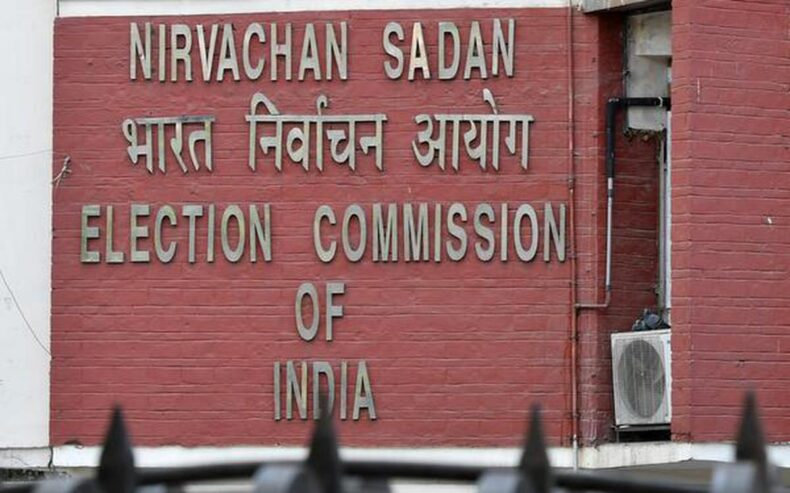“The 86 Registered but Unrecognized Political Parties (RUPPs) that have been removed from the list, according to the EC, were discovered to be “non-existent either after a physical verification carried out for concerned states/UTs or based on the report of undelivered letters/notices from postal authorities sent to them.”
Another 86 registered but unrecognised political parties that did not exist have been taken off the Election Commission’s list. This means that 537 of these groups have now been caught breaking election laws.
The EC said that 253 more registered but unrecognised political parties (RUPPs) were “inactive” and that “urgent remedial steps” needed to be taken for the “purity” of electoral democracy and the greater good.
The choice was made by Anup Chandra Pandey and Chief Election Commissioner Rajiv Kumar.

This action against 339 non-compliant RUPPs raises the total number of defaulting RUPPs since May 25, 2022, to 537, according to the EC. “Today, the EC took off the list another 86 RUPPs that don’t exist and labelled another 253 as “Inactive RUPPs,” the EC said.
The 86 RUPPs that were delisted, according to reports, was discovered to be “non-existent either after a physical verification carried out by the respective Chief Electoral Officers (CEOs) of the concerned states/UTs or based on the report of undelivered letters/notices from postal authorities sent to the registered address of the concerned RUPP.”
Based on the information provided by the CEOs of Bihar, Delhi, Karnataka, Maharashtra, Tamil Nadu, Telangana, and Uttar Pradesh, the decision was made against 253 non-compliant RUPPs. Since they didn’t respond to the letter or notice that was sent to them and didn’t run for any office in 2014 or 2019, they were considered inactive.
Political parties’ tax and finances
In other areas, the income-tax administration launched raids last week against specific RUPPs as part of a tax evasion investigation against them. According to reports, the I-T department made a decision based on the actions taken by the EC against the RUPPs in May and June. As a result, it wrote to the Central Board of Direct Taxes (CBDT) and asked it to take the “necessary measures under an existing legal framework.”

The most recent EC decision says that the 86 RUPPs that don’t exist will be “removed from the list of registered RUPPs and may not be able to get benefits under the Symbols Order, 1968.”
The EC said that parties who were unhappy with the most recent order could contact the relevant CEO/Election Commission within 30 days of the release of this directive, along with all evidence of the existence and other legal and regulatory compliance. This includes year-by-year audited financial statements (for all years in default), contribution reports, expenditure reports, and updates of office bearers, including authorised signatories for financial transactions (such as a bank account).
Read More:
Ban on victory processions abolished by the Election Commission












